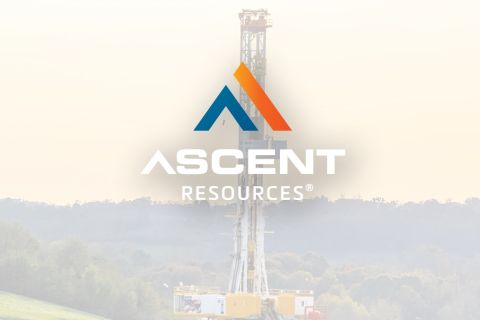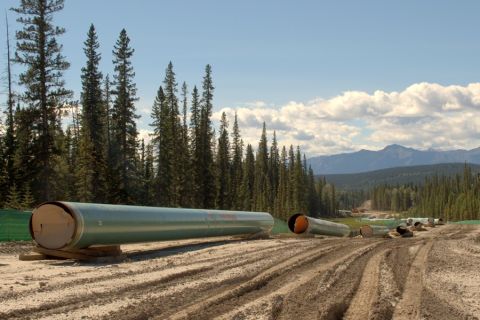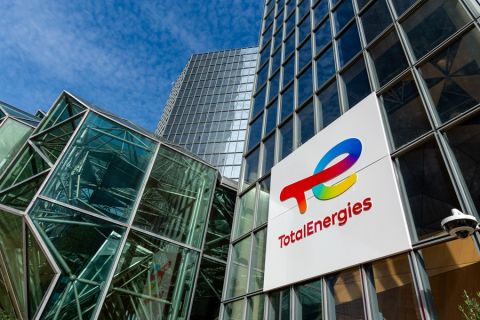While the oil and gas industry has already made noticeable strides in ESG, Kathryn Roark from Patterson UTI hopes to improve it even further. As vice president of diversity and ESG, she’s seen the advancements in technology and automation, as well as with diversity of the workforce, but aims to create more opportunities for different demographics within the sector.
“For decades, it's been kind of a generational business and you're seeing more talent want to come to the oil and gas sector. We want to be a part of the future too,” she told Hart Energy.
Roark recently spoke to Hart Energy executive editor-at-large Nissa Darbonne about the industry’s track record with hiring diverse talent and how the process can evolve going forward. Roark’s complete 25 Influential Women in Energy profile will be available on Feb. 2.
Nissa Darbonne: Katherine, what are some of the industry's achievements in ESG?
Kathryn Roark: I think you see right now a lot around, obviously technology and really, companies that are innovative and creating new technology are, they're using that kind of as a competitive advantage with our operators, the E&P companies. For a company like mine and really opportunities for talent that's not been attracted to our industry before, you have more automation, you have more remote ops, so someone can be sitting in the office-based environment, you know, working with the field employees. So it's opening up new opportunities for talent that hasn't really wanted to work in the industry before.
ND: And then in terms of the E-part: carbon, I mean, I've seen operators really, very quickly make great strides on the emissions point there. What are some areas that are going to be the most difficult outside of the commodity itself for Patterson UTI's clients?
KR: I think a lot of that will be based upon, you know, how the market is doing and you know, there's a cost component to so much of this. So at the end of the day, for a publicly traded company, you know, we still need to perform and provide a positive outcome for our shareholders. Balancing what it is, we're all trying to do around the ESG notion and specifically doing things better and cleaner and smarter. So I think, you know, the business is what it is and we all recognize that. I mean, I think Larry Fink kept BlackRock even said a few weeks ago, he sees hydrocarbons around another 70 years. So, you know, I really think it's just the burden is on us and partnership with our customers to just find ways through that new technology and also creativity around the carbon issue to move us forward in a good way.
ND: On the measure of diversity itself and the industry, I would imagine that any initial steps towards that would be, you know, very impactful, but I suspect that we still have a long way in industry to go in terms of diversity. Where do you feel we are and when do you think we might get to where we need to be?
KR: You know, it's interesting and I think as you look at even different companies and their kind of profile of jobs within our industry, you know, some of the big E&P and operators offer more attractive jobs that might appeal to more diverse talent or talent that hasn't worked for us before. More office space, more engineers, more software. What you're seeing around the service companies though, is that we are in light of the new technology and in light of the innovation, we are able to offer more of those jobs now, which all of us hope will in turn attract more females to the industry, more traditional demographics that haven't come to our industry before. ‘Cause you know, for decades, it's been kind of a generational business and you're seeing more talent want to come to the oil and gas sector. We want to be a part of the future too. All our businesses still want to be around and relevant in the future. So attracting that talent that can bring new innovation and new thoughts is a real focus for all of us.
Recommended Reading
Ohio Utica’s Ascent Resources Credit Rep Rises on Production, Cash Flow
2024-04-23 - Ascent Resources received a positive outlook from Fitch Ratings as the company has grown into Ohio’s No. 1 gas and No. 2 Utica oil producer, according to state data.
E&P Highlights: April 22, 2024
2024-04-22 - Here’s a roundup of the latest E&P headlines, including a standardization MoU and new contract awards.
US EPA Expected to Drop Hydrogen from Power Plant Rule, Sources Say
2024-04-22 - The move reflects skepticism within the U.S. government that the technology will develop quickly enough to become a significant tool to decarbonize the electricity industry.
For Sale? Trans Mountain Pipeline Tentatively on the Market
2024-04-22 - Politics and tariffs may delay ownership transfer of the Trans Mountain Pipeline, which the Canadian government spent CA$34 billion to build.
TotalEnergies to Acquire Remaining 50% of SapuraOMV
2024-04-22 - TotalEnergies is acquiring the remaining 50% interest of upstream gas operator SapuraOMV, bringing the French company's tab to more than $1.4 billion.





